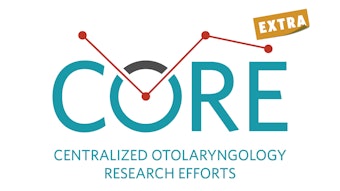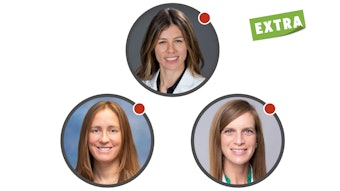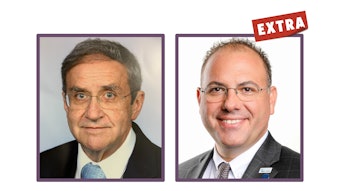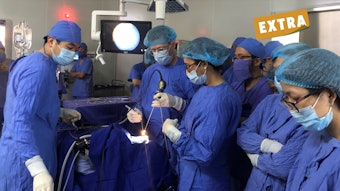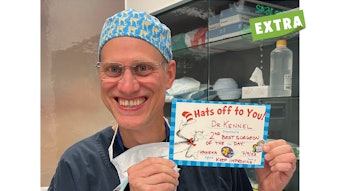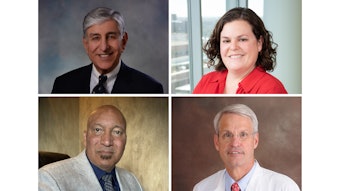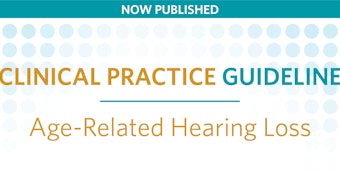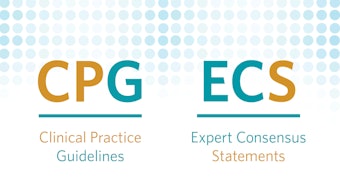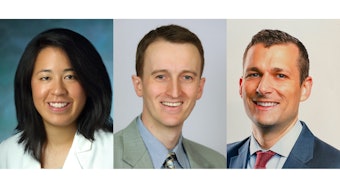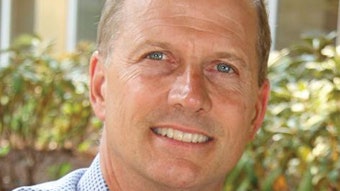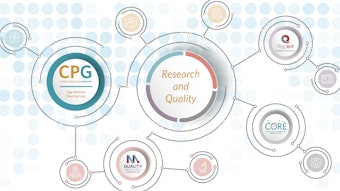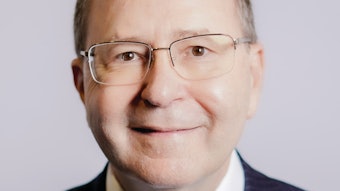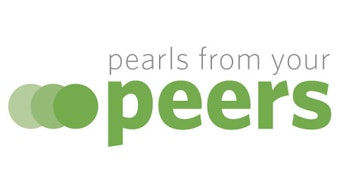Advancing Diversity, Equity, and Inclusion Through Pipeline Programs
The Wake Forest University School of Medicine’s mentorship program provides a blueprint to encourage preclinical medical students to consider a career in our specialty.
Eric M. Kraus, MD, MS, on behalf of the Diversity and Inclusion Committee, and Claire Hoffman and Zoe-Ann Robertson, Wake Forest University School of Medicine medical students and graduates of the Wake Forest OHNS Mentorship Program for Pre-Clinical Medical Students
 Eric M. Kraus, MD, MS
Eric M. Kraus, MD, MS
Clinical Assistant Professor, Otolaryngology, Wake Forest University School of Medicine
In the United States, Black and Hispanic individuals constitute 31% of the population, but only 8% of physicians1 and a meager 6.2% of our specialty.3 According to the 2022 Otolaryngology Workforce Survey, the specialty is 67.9% White, 15.5% Asian, 2.4% Black, 3.8% Hispanic, 1% multiracial/non-Hispanic, 0.7% other, and 8.3% unknown. In terms of age, 15.1% of practicing otolaryngologists are under age 40, while 24.2% are age 65 or older.3
In part, the diversity of our specialty may be attributable to the applicant pool and the ability to recruit diverse candidates into our residency programs. There are some signs that the specialty is becoming more diverse. Among otolaryngology residents, 4.8% identify as Black and around 6.7%, 0.5%, and 0.2% identify as Hispanic, Native American/Alaskan, and Pacific Islander, respectively. However, only 18% of residency programs have reported efforts to increase diversity in the last several years (post-COVID-19).
There are many recognized barriers to entering otolaryngology-head and neck surgery that may influence the applicant pool: inadequate early exposure to the specialty, lack of mentoring/coaching/sponsorship, a paucity of structured departmental diversity programs, difficulty maneuvering a complex residency application process, increasing competitiveness, a limited number of residency positions, and implicit bias.
Attempts to increase diversity, equity, and inclusion in our specialty have included dedicated sub-internships, away rotations and grants for away-rotations, creative virtual education/curricula, multi-institutional collaboration/research opportunities, virtual interviews, engagement with national organizations (e.g., the Black Women in Otolaryngology Group, the Black Otolaryngology Network, the Harry Barnes Society, and the AAO-HNS Diversity and Inclusion Committee), a plethora of social media efforts, and a few pipeline mentorship programs for underrepresented students.4 It has been demonstrated that students exposed to mentors and positive role models within a medical specialty are significantly more likely to choose that specialty.5
In 2022, the Department of Otolaryngology Head and Neck Surgery (OHNS) at Wake Forest University School of Medicine (WFUSM) instituted the “OHNS Mentorship Program for Pre-Clinical Medical Students,” targeting rising second year medical students. During 2022 and 2023, two students per year participated. In 2024, three students will participate.
Before we share the detailed blueprint for the program, two graduates share their experiences and reflections, including how the OHNS Mentorship Program influenced their decision to apply for residency in otolaryngology.
“This experience is very dear to me, as it is absolutely the start of why I’ve decided to pursue otolaryngology.”
 Claire Hoffman
Claire Hoffman
Wake Forest University School of Medicine, MD Class of 2025
Claire Hoffman
Wake Forest University School of Medicine, MD Class of 2025
Otolaryngology–Head and Neck Surgery Applicant
When I first heard about Wake Forest’s otolaryngology mentorship program, I was in my first year of medical school, and still overwhelmed with choices about what I might want to do with my career other than knowing I’d liked our anatomy course. As a first-generation medical student, I didn’t know much about otolaryngology and was in the midst of busy summer planning. However, a fourth-year student who was on our Justice Thread board (the section of our curriculum that focuses on Diversity and Inclusion within our curriculum) reached out to me as her friend was helping the program get off its feet. She encouraged me to apply because she thought the field of ENT might be a good fit for me, and the mentorship program seemed invaluable. As I started to investigate it more closely, otolaryngology stood out strongly to me with its combination of clinic and operations and ability to make such an immense (and often, visible) difference in patients’ lives. I am grateful to that friend and to Dr. Kraus because—fast forward two more years—here I am applying to otolaryngology residency!
The program allowed me to spend six weeks in our department during the summer after my M1 year rotating through our different ENT subspecialties. During this time, I rounded with residents, attended weekly departmental grand rounds and lectures, and shadowed and participated in clinic and the OR. It provided me the opportunity to further explore and understand what day-to-day life looks like for ENT physicians and fall in love with head and neck surgery, as well as become more comfortable in a clinical setting as a medical student earlier. It also allowed me to further define my interests in terms of the diversity of patient populations I want to work with and be able to serve, and the lasting impact on patients’ quality of life I want to make.
This experience is very dear to me, as it is absolutely the start of why I have decided to pursue otolaryngology. I still feel a sense of awe every time I learn something new about what otolaryngologists can do and the breadth of practice open to me, as well as the deep lifesaving and quality of life impact we have on our patients, which are some of the most important things that drew me into the field. It is also what lets me keep falling in love with otolaryngology every day, and this program was the start of that.
My recommendation to schools or students looking to start something similar is please do! I know it is not easy to organize something like this, especially as departments juggle busy attending and resident demands as well as various learner schedules. However, there is a lot of value even in a structured shadowing opportunity, as it still allowed me to meet people and become more comfortable navigating and networking in our department.
Additionally, I cannot stress enough the importance of offering opportunities such as this one as we continue to try to find ways to encourage diversity in our future otolaryngologists to serve our ever-diversifying patient population. As someone whose journey may have been vastly different if I had not been able to participate in this program, I am very thankful for the opportunity and passionate about continuing to make it available to others who come after me.
“I found that even though the field is commonly referred to as “ear, nose, and throat,” it encompasses so much more than those simple three words.”
 Zoe-Ann Robertson
Zoe-Ann Robertson
Wake Forest University School of Medicine, MD Class of 2025
Zoe-Ann Robertson
Wake Forest University School of Medicine, MD Class of 2025
Otolaryngology–Head and Neck Surgery Applicant
I first heard about the mentorship program through an email that was sent to our class. It was described as a six-week summer opportunity to learn more about the field of otolaryngology and offered in-depth surgical experience. I decided to apply because I had always been interested in surgery and was certain about pursuing it as my calling but did not know what specialty I wanted to practice in. The program was perfect because it allowed me to spend a week rotating through each subspecialty within otolaryngology. I was also able to complete a presentation about incorporating ethnicity into rhinoplasty. Lastly, because the program was six weeks long, I still had a few weeks at the end to freely spend my summer vacation.
I knew almost nothing about otolaryngology prior to applying. All I knew was that I wanted to do surgery.
My experience overall was phenomenal! I loved every aspect of it. Not only was I able to learn more about the field and experience what life would be like as a resident, but I was also able to advance myself as an upcoming M2. The residents would encourage us to practice our suturing skills, occasionally taking the time to show different stitches. They also encouraged us to practice presenting patients—which was daunting as a rising M2, but something I deeply appreciated as I began my third year.
The program was very similar to a surgical rotation, and I think this also prepared me well for my rotation third year as I knew very well what to expect. Additionally, I loved feeling like I was a part of the team and admired how well the residents worked together. The comradery and inclusion of medical students I experienced are now the qualities that I am looking for in programs I am interested in applying to.
I found that even though the field is commonly referred to as “ear, nose, and throat,” it encompasses so much more than those simple three words. The breadth even within each subspecialty, I felt, was barely experienced during my time. I was thrilled to discover this as breadth and variety in surgical procedures is another thing sought in a specialty. One experience that solidified otolaryngology for me occurred during my second to last week of the rotation. I was observing a rhinoplasty with one of the residents and attendings and was amazed to see the level of planning, attention to detail, and perfectionism the attending displayed during the operation. For the first time I saw my character traits reflected and could see myself in the attending’s shoes. Later that week, I was able to shadow the same attending in clinic and we went over some of the reconstructive surgeries he performed, and I was sold even more. It was incredible to see the difference and I wanted to be a part of that restorative process.
The Wake Forest OHNS Mentorship Program for Pre-Clinical Medical Students
The goals of the program are to provide an early introduction to OHNS and its six main subspecialties (otology, laryngology, nasal/sinus/skull base, head and neck oncology, facial plastics/trauma, pediatric OHNS), connect students with faculty and resident mentors, enhance medical knowledge and clinical skills, stimulate an interest in OHNS research, and create networking opportunities for underrepresented students as well as to promote diversity, equity, and inclusion in the specialty.
The blueprint for the program is highly structured:
- Six-week annual program from May to mid-June for rising Med 2 students.
- WFUSM Otolaryngology Interest Group (OIG) is used as a platform to introduce the program in October followed by a 1-hour virtual presentation in November.
- Students complete applications online, which include essays and letter(s) of recommendation.
- The applications are reviewed by the author with final selections by the end of December.
- The author serves as the primary faculty mentor for all students and an R3 OHNS resident is assigned as a resident mentor.
- The department administrator/secretary coordinates learner’s schedules and residents orient the students to the hospital, rounding times and locations, and operating rooms.
- Official written permission is obtained for each student to observe in the Main Operating Rooms and badge access to the OR and to scrub clothes is secured.
- Students’ names are added to our department’s daily OR schedule email list to notify them as to which OR they have been assigned to for that day.
- Several days prior to beginning the program, an in-person orientation meeting with me is held with the students to review the program, discuss schedules, logistics, expectations, appropriate dress, rounding, professionalism, and to answer questions.
- Five days after finishing their Medical Student 1 year, the students begin to rotate through the department for six weeks, each with an individualized schedule.
- Each week of the six-week rotation, students are assigned to a different sub-specialty, pairing them with different faculty members each week in both the Clinic and Operating Room setting (Atrium Health Wake Forest Baptist Hospital and our Clemmons Ambulatory Surgery Center).
- Students are required to round with our residents each day at 6:00 am, attend all didactic presentations (medical student and resident lectures, Grand Rounds, and our WakeWings OR safety program), and participate in resident activities.
- Students are expected to read and to prepare for each lecture, clinic, and operation that they will be attending/observing.
- Three half-days during the rotation, students are assigned to observe our diagnostic Audiologists and Speech Pathologists. They observe adult and pediatric audiometric testing, hearing aid/hearing implant evaluations and fittings, cochlear implant activation/mapping, comprehensive vestibular testing, and speech/swallowing evaluations.
- Each student presents a formal 10-minute presentation to me on the last day of the rotation on a topic of interest gained from their rotation experience.
- Each student is encouraged to continue to interface with our faculty, the Department, and faculty mentor for continued mentorship, advice, and guidance.
- Students are evaluated based on their attendance, clinical performance, preparedness, professionalism, and teamwork.
- A final grade for the mentorship is a combination of their oral presentation (30%), mentor evaluations (50%), and resident evaluations (20%). The grading scale is: Pass, High Pass, Honors, and Fail. A minimum score of 70% must be achieved for a grade of Pass.
The focus of this program is on early exposure to the specialty, mentorship, medical education, patient care, faculty and resident life, career advising, networking, research opportunities, and professionalism.
The program has been very well received and supported by students, residents, faculty, and senior leaders in the Wake Forest University School of Medicine. A small stipend has been awarded to each student by the Office of Diversity and Inclusion to help offset expenses.
Students are debriefed and complete a post-program feedback survey based on a modified Likert scale to help assess the strengths and weaknesses of the program.
In return for their participation, students agree to be followed longitudinally through the remainder of their medical school education until Match Day. The goal is to determine the impact of the program on their medical school performance and career trajectory as compared to non-participating students. To date, our first four students, three Black women and one Indian-American woman, have all expressed their intention to pursue a career in OHNS.
Early introduction to OHNS, a supportive administration, dedicated faculty, cooperative residents, and an organized faculty mentor are the keys to success.
